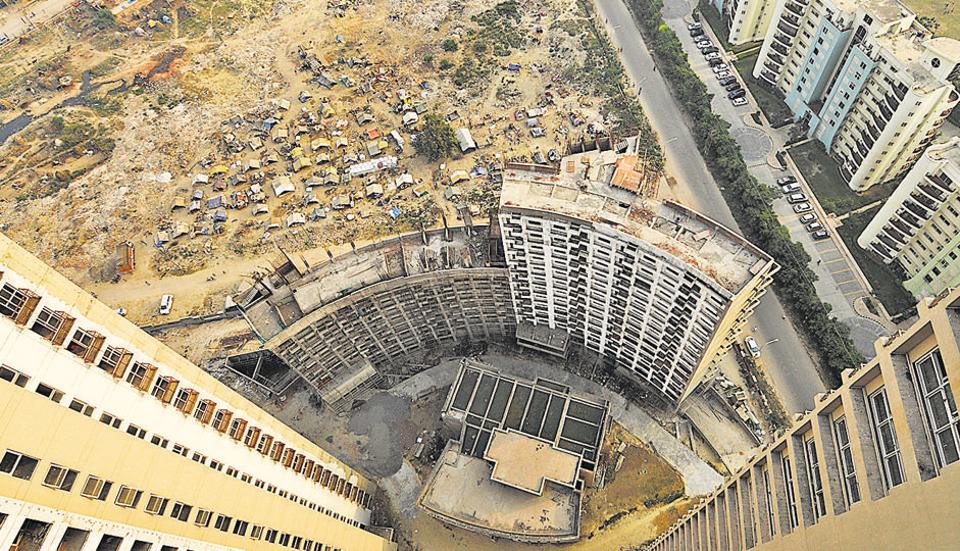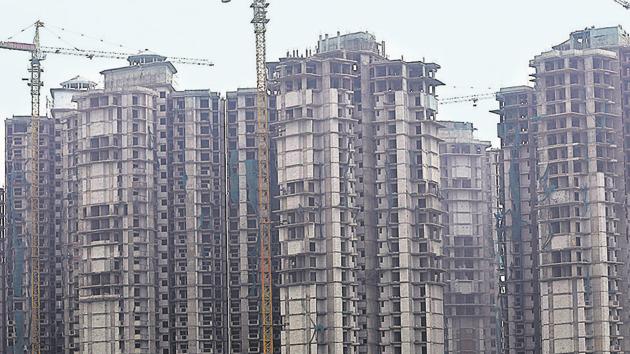Stuck projects: Noida, Greater Noida authorities told to prepare report on financial implications, possible approaches to address issue in 2023

Stuck projects: Noida, Greater Noida authorities told to prepare report on financial implications, possible approaches to address issue in 2023
In response to ongoing concerns related to builder dues, pending property registries, and stalled housing projects, the authorities in Noida and Greater Noida are taking proactive steps to address these issues.
The objective is to find effective solutions that align with the recommendations of the Amitabh Kant committee. This committee, established by the government, has provided insights into resolving these issues and getting housing projects that have faced setbacks back on track.
To initiate corrective measures, the Noida and Greater Noida authorities have been instructed to compile a comprehensive report. This report will outline potential strategies that can be implemented in accordance with the suggestions made by the Amitabh Kant committee. The report will encompass a detailed analysis of the strategies and their implications, particularly focusing on the financial aspects.

Specifically, the report will delve into the financial ramifications that may arise if the recommendations proposed by the Centre’s panel are executed by the state government. Among these recommendations is the notion of rationalizing interest rates on outstanding builder dues and potentially offering a four-year moratorium to provide relief to developers. This analysis will provide a clear understanding of the potential fiscal impact on the authorities if these suggestions are adopted.
Furthermore, the report will explore the financial consequences associated with the concept of separating property registries from pending dues. This concept, which has been suggested by the Centre’s panel under the leadership of former Niti Aayog Chief Executive Officer Amitabh Kant, presents a novel approach to resolving these issues.
The directive to prepare this comprehensive report was issued by Manoj Kumar Singh, the Development Commissioner of the Uttar Pradesh government’s Industrial Development Commissioner. By initiating this process, the authorities are demonstrating their commitment to finding pragmatic solutions that can rejuvenate the real estate sector, expedite pending projects, and address the concerns of both developers and property buyers.
These efforts reflect a multi-faceted approach aimed at creating a conducive environment for the real estate market’s growth while considering the interests of all stakeholders involved. The careful examination of financial implications and innovative strategies underscores the authorities’ dedication to navigating complex challenges and driving positive outcomes for the region’s real estate sector.
In the ongoing efforts to address concerns surrounding builder dues, property registries, and stalled housing projects, a comprehensive approach is being adopted. A source has indicated that a detailed report will be meticulously prepared to present potential solutions.
Subsequently, the Uttar Pradesh (UP) government will deliberate on which solution to adopt. This process is aimed at making a well-informed and judicious decision that takes into account the intricacies of the issues at hand.

Once the report is compiled, it will be subjected to discussion by both the Noida and Greater Noida authorities. This collaborative discourse is designed to facilitate a comprehensive understanding of the implications and advantages of each proposed solution. This collaborative effort is crucial to ensure that the selected course of action is well-considered and effective.
Upon thorough discussion, the outcomes and recommendations stemming from the deliberations will be conveyed to the UP state government. This final stage will culminate in the state government’s determination of a new policy that best addresses the pressing concerns. This process underscores the commitment to transparency, consultation, and informed decision-making in the development of effective solutions.
As part of this deliberative process, there are two main potential avenues of action. The first involves the rationalization of interest rates on builder dues. This could involve adjusting the interest rates applied to outstanding dues to make them more equitable and manageable for developers. The second option pertains to granting a moratorium to developers on their pending dues. This approach would provide temporary relief to developers, allowing them additional time to address their financial obligations.
It is important to recognize that pursuing either of these options may necessitate some trade-offs. This could involve the authorities foregoing a portion of the accumulated funds from builder dues. Balancing the financial implications and the benefits to both developers and the real estate sector at large will be central to the decision-making process.
In summary, the approach taken involves a multi-stage process that prioritizes collaboration, transparency, and thorough analysis. By creating a space for discussion and consultation, and by considering various potential solutions, the authorities aim to arrive at a decision that is well-informed and serves the best interests of all stakeholders involved.
The financial landscape within the real estate sector in Noida and Greater Noida is complex, characterized by significant outstanding dues from real estate developers to the local authorities. According to official estimates, these developers collectively owe approximately Rs 26,000 crore to the Noida Authority and around Rs 14,000 crore to the Greater Noida Authority. This substantial sum of outstanding dues has prompted a series of proactive steps to address the issue and facilitate resolution.
In an effort to gain a more accurate understanding of the dues, the Noida Authority has engaged the services of a firm of chartered accountants. The purpose of this engagement is to re-evaluate and reassess the dues owed by developers, aiming to achieve a clearer and more comprehensive perspective. This exercise is expected to culminate in a report that provides a comprehensive overview of the dues situation. The anticipated submission of this report within six to seven days underscores the authorities’ commitment to transparency and accurate assessment.
The preliminary findings reveal a nuanced dues landscape. Among the developers’ dues owed to the Noida Authority, approximately Rs 9,000 crore stems from non-litigated projects. On the other hand, nearly Rs 17,000 crore is linked to projects entangled in legal processes, such as those under the purview of the National Company Law Tribunal (NCLT) or the Supreme Court. This differentiation highlights the diverse challenges that need to be addressed within the broader context of resolving dues and reinvigorating stalled projects.
In line with these developments, the Amitabh Kant panel has proposed a moratorium on payments owed by builders to land-owning authorities. This proposition carries the potential to provide developers with the breathing space needed to bolster their financial standing and complete housing projects that have been delayed or stalled. The proposed approach envisions developers gradually clearing their dues over a stipulated period, accompanied by reasonable interest rates. Importantly, the emphasis is on project completion, signaling the recognition of the importance of delivering on housing commitments to homebuyers.
The real estate sector in Noida and Greater Noida is grappling with an array of challenges, including numerous projects that are stalled or delayed, often complicated by legal disputes before bodies like the Supreme Court and the NCLT. Addressing these complexities requires multifaceted strategies that encompass financial reevaluation, policy reform, and a focus on completing projects to fulfill the aspirations of both developers and homebuyers. The current initiatives reflect the authorities’ determination to navigate these challenges and reinvigorate the real estate landscape.
Gaurav Gupta, who serves as the Secretary of the NCR chapter of the Confederation of Real Estate Developers Association of India (CREDAI-NCR), has emphasized the significance of prioritizing the interests of homebuyers and finding effective solutions to the challenges faced by the real estate sector. He affirms that CREDAI has been advocating for the protection of homebuyers’ rights and the need to address the issues that have arisen in the industry.
Gupta acknowledges the value of the Amitabh Kant panel’s report, characterizing it as a constructive and beneficial contribution. He expresses optimism about the potential positive outcomes that could stem from the implementation of the recommendations presented in the report. Gupta underscores the importance of prompt implementation, as it holds the promise of delivering solutions to the intricate challenges confronting the real estate sector.
The sentiments expressed by Gaurav Gupta reflect the industry’s recognition of the multifaceted challenges faced by both developers and homebuyers. The acknowledgement of the need to safeguard the interests of homebuyers and the expectation of finding resolutions through collaborative efforts exemplify a commitment to restoring trust, fostering accountability, and revitalizing the sector.
The report’s potential to act as a catalyst for change and positive transformation resonates in Gupta’s hopeful anticipation of timely solutions. By aligning the interests of various stakeholders and advocating for the implementation of constructive measures, stakeholders like CREDAI contribute to the ongoing efforts to rebuild a vibrant and sustainable real estate landscape that benefits everyone involved.



